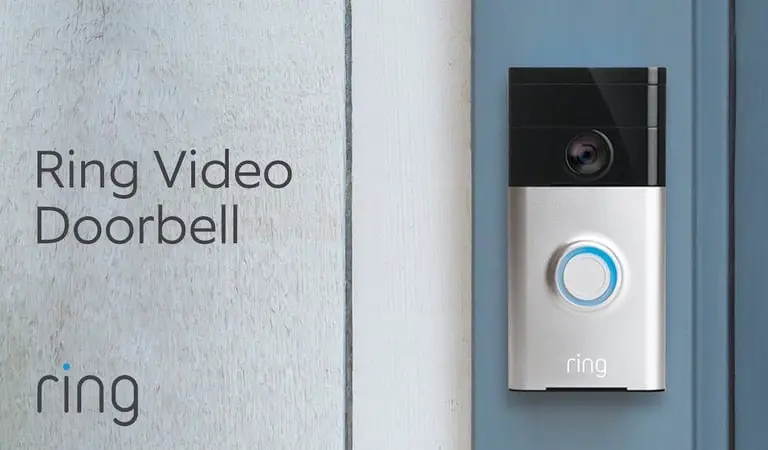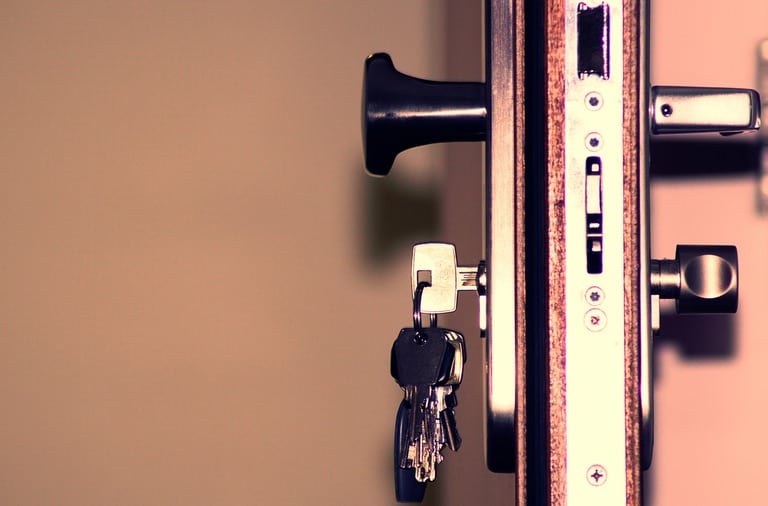Both landlords and tenants have responsibilities when it comes to the security of buy-to-let properties. The integrity of locks and keys play a big part in not only protecting your rental property, but in protecting the safety of your tenants well-being too. But who is responsible for paying to have the locks changed? The landlord or the tenant?
Landlords are to provide replacement locks if they become damaged or faulty. Tenants can pay to change the locks if the tenancy agreement allows, but a new key must be handed to the landlord. The landlord is entitled to change the locks again, at the tenants expense, if these conditions are not met.
Like many questions, the answer is – it depends. So lets consider the most common scenarios where locks and keys are involved with a buy-to-let rental property.
Firstly, landlords must provide a secure property for their tenants and they must also ensure the continued security during the tenancy by replacing any damaged or faulty locks as soon as they are reported.
And secondly, locks can be rendered useless if landlords do not have full control over the accountability of the keys. All keys should be properly accounted for at the start and end of each tenancy. If keys are lost and replaced during a tenancy, it will be up to the landlords discretion as to whether the locks will require changing at the end of the tenancy agreement.
This will depend on a number of factors, such as how much time has passed since the last key was lost, and other security measures which are in place at the property.
For example, I have installed a Ring Video Doorbell from amazon.co.uk at one of my rental properties. I had one installed at my home address and I was really pleased with it’s features, ease of use and the additional security that it provides, so I decided to trial it at one of my buy-to-lets.

The tenants where immediately thrilled and they are still very happy with it. They like the convenience and the security of being able to see who is at the front door on their smart phones, whether the doorbell is pressed or not as it has motion sensors. And the ability to talk to the visitor even if they are away from home.
As the camera is set to record whenever someone approaches the front door, I wouldn’t necessarily feel the need to replace the front door lock if the tenant lost the key and I had to provide a replacement.
Generally, landlords are not responsible for changing locks in the following situations:
- When the tenant loses his or her keys.
- When the tenant damages the lock.
- When the tenant loans the key to someone who fails to return it.
- When a new tenant moves into their home.
A landlord is responsible for changing locks in the following situations:
- When locks become rusty, broken, or difficult to operate, especially before a new tenant arrives.
- When any occurrence such as a break in reveals that the existing locks are not secure enough.
Contents
Do Landlords Have To Change Locks Between Tenancies?
No. Landlords are not required by law to change the locks on their rental properties between tenancies. Although landlords should account for all keys at the start and end of each tenancy, to ensure the integrity of the properties security for the next tenant.
Keys and locks are subject to wear and tear over the years, so it’s worth taking a close look at the condition of the locks between tenancies, and considering whether it would be a good time to change them. I would suggest that the time between tenancies is the best time to change the locks.
Discretion rests with the landlord, and it’s in the landlords best interest to do all they can to make their property safe and make the tenant feel safe. After all, a tenant who is burgled may well decide to leave as soon as the fixed term period expires on their tenancy agreement.
An unhappy tenant leaving creates void periods, which then leads to loss of rental income and additional expenses with having to market the property for rent again.
If I had any doubt about the strength of security at one of my buy-to-let properties, I wouldn’t hesitate to pay the relatively small fee for having the locks changed. Prevention is way better than the cure!
Master Key Systems For Rental Properties
I have seen some properties with a master key system. This is where one master key can unlock a number of locks. This system is commonly seen in Houses of Multiple Occupancy (HMO), whereby you have a number of people renting individual rooms within the same property.
Each tenant has a key which only opens the door to their own room, but the landlord has one master key which can unlock all the rooms within the property. This may sound like a convenient system for a landlord or property manager, but there is a huge downside if the master key is ever lost, or if the security of a lock for an individuals room is breached.
Essentially, one lost key could mean that the landlord would need to change ALL the locks within the property. Instead, I would recommend using a duplicate key system for each lock.
Are Landlords Responsible For Changing The Locks?
Landlords are responsible for replacing locks which are faulty and compromise the properties security. Tenants can change functional locks once they move in, if the tenancy agreement allows, but they must provide the landlord with a key for the new lock once installed.
This is to allow the landlord to enter the property if there is an emergency, or to visit the property for a scheduled inspection or routine maintenance issue once a 24 hour notice period has been given.
Can A Landlord Charge A Tenant For A Lost Key?
A landlord or property manager can charge the cost of having to get a new key cut, to a tenant who has lost their key. If the loss of a key results in the need for the locks to be changed, the tenant will also be liable for the total costs of having a new lock fitted.
The cost of replacing a lost key, or replacing a lock, is to be evidenced with receipts and should be deemed a reasonable amount. A tenant will be able to challenge the amount a landlord or property manager charges, if they believe the cost is excessive, through the Local Authority, Trading Standards or the First Tier Tribunal.
The Tenant Fees Act 2019 gives clear guidance on the charges that landlords and managing agents can pass to the tenants.
Can A Landlord Change The Locks For Non Payment Of Rent?
A landlord cannot change the locks of a rental property for non-payment of rent. If a tenant has fallen behind with the rent payments, and the landlord changes the locks, the landlord will find it very difficult to gain possession of the property and evict the tenant through the legal channels.
If a tenant fails to pay their rent, the landlord can serve a Section 8 Notice under the Housing Act 1988 for breaching the Assured Shorthold Tenancy agreement, to start the eviction process.
If the tenant is no longer in the fixed term of their tenancy agreement, the landlord can serve a Section 21 Notice to start the eviction process if the tenants refuses to pay the rent owed.
Preventing your tenant from being able to enter their home, or removing their belongings without their permission in an attempt to evict them, is illegal. Whether the rent is paid on time or not, the tenant has a right to the quiet enjoyment of their home until an eviction notice is served on them through the courts.


